Personalized Medicine & Applied Engineering M.S. Program
Biomedical Engineering
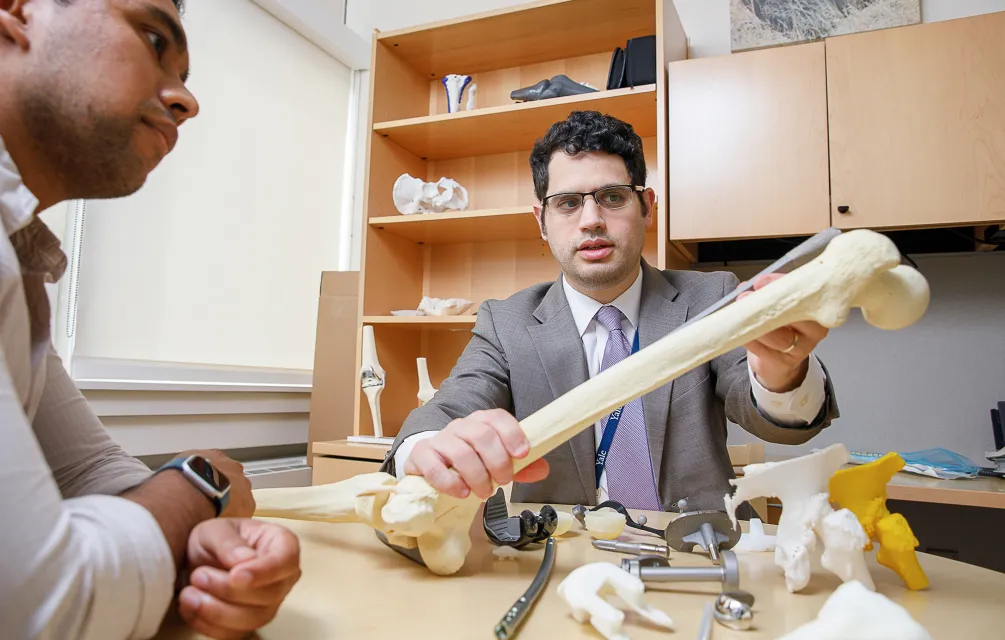
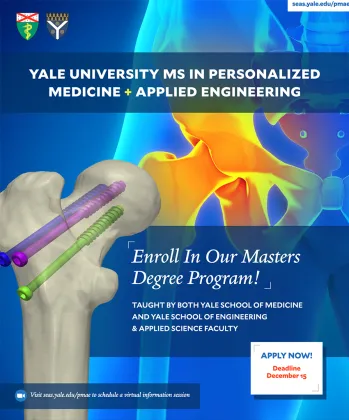
Overview
The M.S. degree in Personalized Medicine & Applied Engineering provides pre-med students, medical students, biomedical, mechanical, and electrical engineers, and computer science majors with the tools to develop innovative 3D solutions for personalized medicine.
Students learn to develop and apply 3D technology to address surgical and medical conditions with the goal of personalizing health care treatments to improve clinical outcomes. Courses are taught by both clinical and ladder faculty from Yale School of Medicine and Yale School of Engineering & Applied Science.
Using high-resolution medical imaging, 3D printing, robotics, computer navigation, and extended reality, students will learn to develop truly custom treatments, patient-specific instruments for surgery, and personalized medical devices.
“This is a terrific program for medical students. You have the autonomy to select your own thesis project and meet all of the faculty through their research pitches.
- Current student
Program Highlights
Graduates of the program will be well-positioned to:
-
Become leaders in clinical research disciplines focusing on personalized medical treatments, radiological services, and identification of pathology.
- They will be able to run a hospital’s point of care printing services and conduct preoperative surgical planning and custom 3D printed instrument design.
- Develop XR tools, such as AR and VR for medical education, surgery and robotics.
- Become strong candidates for engineering positions that focus on the development of personalized treatments, the design of custom 3D surgical instruments and guides, custom implant design, tissue engineering, and manufacturing.
The many different clinicians you may shadow:
- Radiology
- Interventional Radiology
- Radiation Oncology
- General Surgery
- Orthopaedic Surgery
- Hand Surgery
- Total Joint Surgery
- Trauma Surgery
- Spine Surgery
- Sports Medicine
- Cardiology
- Electrophysiology
- Pain Management/Block Service
- Vascular Surgery
- Ear, Nose and Throat Surgery
- Anesthesia
- Regional Anesthesia
- Pediatric Critical Care Medicine
- Neurosurgery
- Neurology
- Neuro Intensive Care
- Dermatology
- Emergency Medicine
- Pulmonary Critical Care
- Urology
- Oncology
- Hematology
- Surgical Intensive Care
- Medical Physics
The range of masters thesis projects previous students worked on:
- Orthopedics: 3D Printed Bone Model Analysis for Analog Testing and Implants
- Sports Medicine: The Effect of Tibiofemoral Rotation on Popliteus Stretch: an Image Analysis Study
- Cardiovascular Medicine: Utilizing Myocardial Blood Flow to Select Viable Marginal Donor Hearts for Heart Transplant
- Cardiovascular Medicine: Optimization of Nanoparticle Charge for Pre-Transplant Delivery to Donor Hearts
- Hand and Upper Extremity Surgery: A Patient-Specific 3D Printed Surgical Guide for Dorsal Scaphoid Fracture Fixation
- Hand and Upper Extremity Surgery: Radial Head Implant Loosening: The Role of Intramedullary Canal Contact Examined Through Finite Element Analysis
- Tissue Engineering and Wound Care: 3D-bioprinting of a full-thickness wounded skin model with implications for the re-epithelialization of a diabetic skin ulcer
- Tissue Engineering: A Novel Method for Bioengineering Whole Rat Lungs Using BASCs in dECM with Dynamic Ventilation
- Vascular Surgery: Confirm endothelial cell’s potential to self-assemble into lymphatic-like capillary structure
- Dermatology: Profiling Cytokine Patterns in Psoriasis and Atopic Dermatitis: A Comparative Approach using RNA and proteomic data from Skin Samples
- Radiation Oncology: 3-Dimensional Printed Ring-and-Tandem Brachytherapy Applicators for Patient-Specific Cervical Cancer Radiotherapy
- Machine Learning: Deep Learning Based Prediction Model For Patients With Primary Central Nervous System Lymphoma
- Point of Care Printing Center: Defining Quality Inspection in Point-of-Care 3D Printing of Surgical Guides
- Pediatrics and XR: Virtual Reality Game Design for Type 1 Diabetes
- Neurosurgery and Brain Trauma: Design and Fabrication of Electrode-Integrated Cerebral Microdialysis Probes
- Brain Tumors: MRI Based 3D Volumetric Analysis of Neurofibromatosis Type 2 Vestibular Schwannomas: Development of a Diagnostic and Visualization Tool
- Cardiology: Applying Machine Learning to Predict Heart Age
- Orthopaedics: Developing a Bone Density Algorithm from CT Scans and X-Rays for Total Knee Arthroplasty
- Vascular Surgery: 3-Dimensional Modeling from Ultrasound of Arteriovenous Fistulas Used for Hemodialysis
- Tissue Engineering: Application of a 3D-Bioprinter: Jet Technology for "Biopatch" Development Using Cells on Hydrogel Supports
- Lung Cancer: A Lung Segmentation Tool For Surgical Planning of Sublobar Pulmonary Resections
- Orthopaedics: Mechanical Effects of Different Fulcrums on Balanced Cable Bone Segment Transport
Advisor: Aboian
Department: Vascular Surgery
Thesis Title: 3D Modeling from Ultrasound of Arteriovenous Fistulas Used for Hemodialysis
Advisor: Aboian/Aneja
Department: Vascular Surgery/Therapeutic Radiology
Thesis Title: Volumetric analysis of iliac arteries
Advisor: Aneja
Department: Therapeutic Radiology
Thesis Title: Applying Machine Learning to Predict Heart Age
Advisor: Aneja
Department: Therapeutic Radiology
Thesis Title: Deep Learning Based Prediction Model For Patients With Primary Central Nervous System Lymphoma
Advisor: Aneja
Department: Therapeutic Radiology
Thesis Title: Improving deep learning methods for radiological image analysis
Advisor: Aneja
Department: Therapeutic Radiology
Thesis Title: Classifying the level of aggression of prostate cancers via AI usage in PET scans.
Advisor: Aneja
Department: Therapeutic Radiology
Thesis Title: Imaging biomarkers extracted via deep learning to personalize brain tumor treatment
Advisor: Aneja
Department: Therapeutic Radiology
Thesis Title: Deep learning to derive imaging biomarkers for breast cancer
Advisor: Buono
Department: Psychology
Thesis Title: Gamma Knife radiosurgery (GKRS) & 3D Volumetric Analysis of NF2
Advisor: Buono
Department: Psychology
Thesis Title: MRI Based 3D Volumetric Analysis of Neurofibromatosis Type 2 Vestibular Schwannomas
Advisor: Damsky/Cohen
Department: Dermatology
Thesis Title: Profiling Cytokine Patterns in Psoriasis and Atopic Dermatitis: A Comparative Approach using RNA and proteomic data from Skin Samples
Advisor: Frumberg
Department: Orthopaedics
Thesis Title: Mechanical Effects of Different Fulcrums on Balanced Cable Bone Segment Transport
Advisor: Frumberg
Department: Orthopaedics
Thesis Title: Characterization of neuromuscular patellofemoral dysplasia
Advisor: Fulkerson
Department: Orthopaedics
Thesis Title: The Effect of Tibiofemoral Rotation on Popliteus Stretch: an Image Analysis Study
Advisor: Geibel
Department: Surgery (Gastrointestinal)
Thesis Title: Application of a 3D Bioprinter: Jet Technology for "Biopatch" Development Using Cells on Hydrogel Supports
Advisor: Hoerner
Department: Medical Physics
Thesis Title: Converting 3D images to projection images
Advisor: Kim
Department: Neurology
Thesis Title: Prediction of complications after acute brain injury
Advisor: Kyriakides
Department: Pathology
Thesis Title: 3D-bioprinting of a full-thickness wounded skin model with implications for the re-epithelialization of a diabetic skin ulcer
Advisor: Kyriakides
Department: Pathology
Thesis Title: A Novel Method for Bioengineering Whole Rat Lungs Using BASCs in dECM with Dynamic Ventilation
Advisor: Lattanza
Department: Orthopaedics
Thesis Title: A Patient-Specific 3D Printed Surgical Guide for Dorsal Scaphoid Fracture Fixation
Advisor: Lattanza
Department: Orthopaedics
Thesis Title: Radial Head Implant Loosening: The Role of Intramedullary Canal Contact Examined Through Finite Element Analysis
Advisor: Lattanza
Department: Orthopaedics
Thesis Title: Scaphoid fixation surgical guides
Advisor: Lattanza
Department: Orthopaedics
Thesis Title: Radial head implant design
Advisor: Lee
Department: Surgery (Otolaryngology)
Thesis Title: Accurate Measuring tool on Endoscopy
Advisor: Marks
Department: Pediatrics (Hematology/Oncology)
Thesis Title: Virtual Reality Game Design for Type 1 Diabetes
Advisor: Materialise
Department: Industry
Thesis Title: A Lung Segmentation Tool For Surgical Planning of Sublobar Pulmonary Resections
Advisor: Materialise
Department: Industry
Thesis Title: AI-based auto-segmentation tool of the radial head
Advisor: Medivis
Department: Industry
Thesis Title: Assessing the accuracy of 3D assistive technologies for surgical guidance of bone tumor resections: a comparative study of mixed reality, patient-specific instruments and freehand approaches
Advisor: Mirza
Department: Pathology
Thesis Title: Investigating the pathophysiology of proximal colon cancer syndrome through a 3D organoid system
Advisor: Pober/Saltzman
Department: Immunobiology/Biomedical Engineering
Thesis Title: Confirm endothelial cell's potential to self-assemble into lymphatic-like capillary structure
Advisor: Pomahac/Wong
Department: Plastic Surgery
Thesis Title: Quantifiably compare the use of microsurgery robots to conventional (manual) surgery in breast reconstruction
Advisor: Stendahl
Department: Cardiovascular Medicine
Thesis Title: Utilizing Myocardial Blood Flow to Select Viable Marginal Donor Hearts for Heart Transplant
Advisor: Stendahl
Department: Cardiovascular Medicine
Thesis Title: Optimization of Nanoparticle Charge for Pre-Transplant Delivery to Donor Hearts
Advisor: Stendahl
Department: Cardiovascular Medicine
Thesis Title: Therapeutic delivery to protect hearts prior to transplant
Advisor: Tien/Materialise
Department: Medical Physics/Industry
Thesis Title: 3-Dimensional Printed Ring-and-Tandem Brachytherapy Applicators for Patient-Specific Cervical Cancer Radiotherapy
Advisor: Tommasini
Department: Orthopaedics
Thesis Title: Defining Quality Inspection in Point-of-Care 3D Printing of Surgical Guides
Advisor: Tommasini/Stryker
Department: Orthopaedics/Industry
Thesis Title: 3D Printed Bone Model Analysis for Analog Testing and Implants
Advisor: Tonnessen
Department: Vascular Surgery
Thesis Title: Identifying normal velocities at anastomosis for arteriovenous fistulas
Advisor: Turner
Department: Ecology and Evolutionary Biology
Thesis Title: Personalized Phage Therapy for Treatment of Surgical Infections
Advisor: Wiznia/Tommasini
Department: Orthopaedics
Thesis Title: Developing a Tool to Automate Avascular Necrosis (AVN) Detection Intraoperatively
Advisor: Zaveri/Spencer
Department: Neurology
Thesis Title: Design and Fabrication of Electrode-Integrated Cerebral Microdialysis Probes
Advisor: Zaveri/Spencer
Department: Neurology
Thesis Title: NeuroProbe: Advancements in intracranial physiological monitoring for traumatic brain injury
Advisor: Zaveri/Spencer
Department: Neurology
Thesis Title: Brain Atlas: Developing a BCI to map the cortico-cortical evoked potential during epilepsy
Advisor: Zaveri/Spencer
Department: Neurology
Thesis Title: NeuroProbe: Evaluation of Implantable Oxygen Biosensors in an animal model, hypoxia chamber study
Advisor: Zaveri/Spencer
Department: Neurology
Thesis Title: A novel silicon-nanowire biosensor for the real-time detection of neurotransmitters
Advisor: Zimmer-Biomet/Wiznia
Department: Industry/Orthopaedics
Thesis Title: Finding Bone Density from X-Rays

“The clinical aspect and shadowing really made this program different from other programs that are just course-based; the focus on virtual surgical tools and 3D printing for clinical engineering applications was unique compared to other top BME programs.
- Current student
Jobs that previous graduates found:
- Medical device industry
- Tissue engineering
- Research lab
- 3D Printing Lab
- Medical School
For questions and further information, contact Drs. Daniel Wiznia and Steven Tommasini.
- Agent Deployment Engineer at Hippocratic AI
- AI Engineer at iHealth
- Biomedical Engineer at 3D Systems
- Clinical Research Coordinator at Mass General Cancer Center
- Clinical Research Coordinator at MGH Foot & Ankle Research and Innovation Laboratory (FARIL)
- Development Engineer at Zimmer-Biomet
- Engineer at Anatomical Modeling Unit at Mayo Clinic Arizona
- Engineer at Lazarus 3D
- Human Health & Performance Intern at NASA
- Imaging Project Coordinator at Medpace
- MD/PhD student at Mt. Sinai School of Medicine
- Med student at Oxford
- Med student at Stony Brook University School of Medicine
- Med student at the Medical College of Wisconsin
- Med student at the University of Miami Miller School of Medicine
- Med student at University of Wisconsin School of Medicine
- Med student in Hong Kong
- Outreach & Database Coordinator for Women's Advocacy Organization
- PhD student at Berkeley
- PhD student at Cornell
- PhD student at University of Calgary
- Post-Graduate Associate at Yale Anesthesiology
- Post-graduate Associate at Yale Pathology
- Post-Graduate Associate at Yale Psychology
- Product Design Engineer at Beekley Medical
- Research & Design Engineer at Stryker
- Research Assistant at Texas A&M
- Research Assistant at University of Hawaii
- Research Assistant at Yale Neurosurgery
- Research Assistant at Yale Orthopaedics
- Systems Designer at Zimmer-Biomet
- Tissue Engineer at DEKA R&D
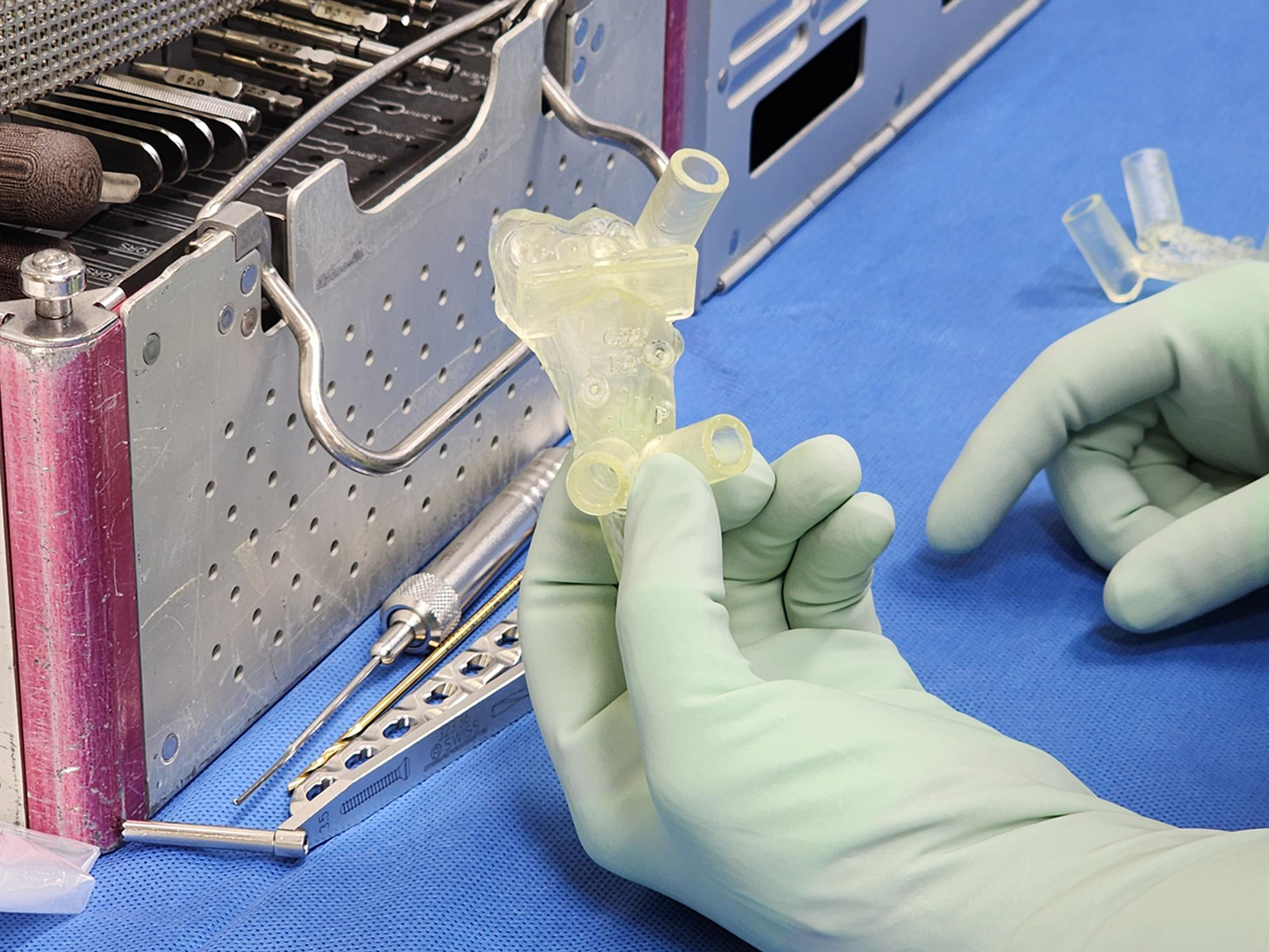
Curriculum
The program is 1 full year: Summer (8 weeks) + 1 academic year (Fall and Spring)
Course Requirements
Given that the Master’s program will attract students from many different backgrounds, students will be granted flexibility by being able to select the focus of their research theses as well as their electives. For example, students with a strong engineering background may want to focus on medical school focused classes, while medical students may want to focus on engineering related courses. In order to graduate, students will need to take a total of 9 courses, of which 7 courses are required and 2 of the courses can be chosen from Yale-wide technical electives approved by the DGS.
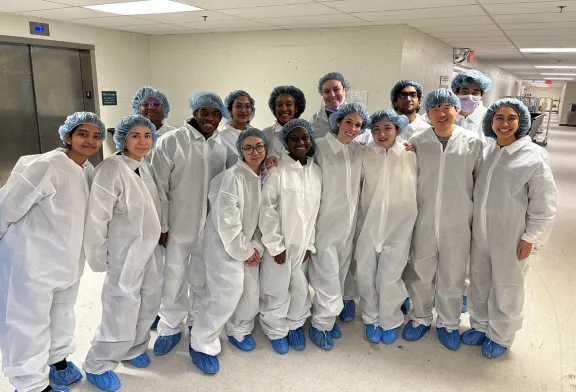

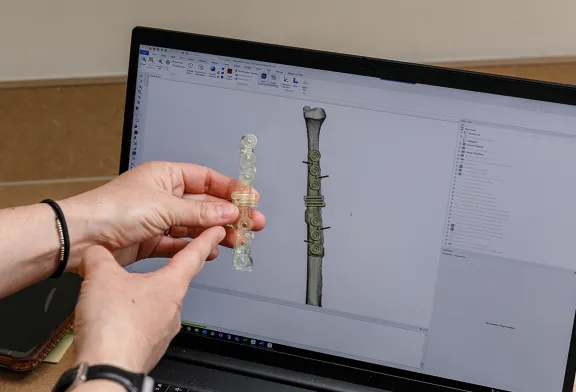
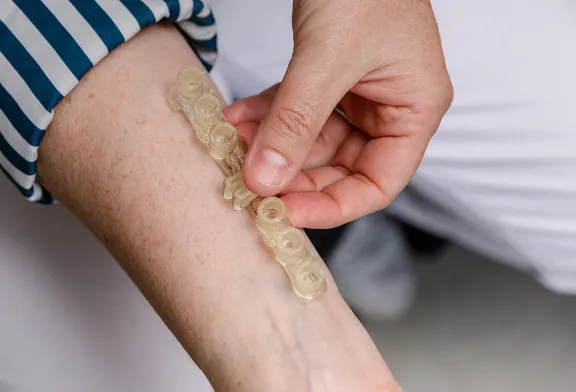
The following seven courses are required of all master’s students:
The course is designed to provide an introduction to basic research methodology and design, which includes statistical analysis techniques. Students demonstrate their knowledge of the course materials by analyzing, interpreting, and summarizing research writing in professional journals and by planning a research study.
Upon completion of this course, students will be able to:
- Discuss issues related to research ethics, responsible conduct of human and animal research, and data collection, as well as recognize how to avoid plagiarism.
- Utilize effective techniques for conducting a literature search using online databases and managing references.
- Critique research articles and determine the quality of publications, identifying issues related to methodology and guidelines to improve scientific rigor and reproducibility.
- Identify and apply the steps involved in the scientific method by formulating a research question, building effective scientific aims, generating a research hypothesis, and designing an experimental plan (study) to address the question.
- Generate and store data in an effective format and then select and perform appropriate statistical calculations to analyze data.
- Interpret visual representations of data (i.e. tables, graphs).
- Utilize scientific principles and inductive reasoning to translate and interpret results.
- Present aspects of the scientific method, including experimental design and results, in an accurate and professional manner.
- Outline the processes related to manuscript reviews, writing, authorship, and journal impact factors.
- Demonstrate a clearer understanding of possible careers and how acquired skills and interests match up to a given career path.
An 8-week summer clinical immersion session provides students with early hands-on learning and shadowing of the current 3D innovation landscape. Students will be assigned to various specialties. They will shadow their mentors in the clinics and operating rooms, observing how they incorporate personalized medicine into the treatment of patients.
This 8-week clinical immersion program starts in the summer before the academic year. This part of the program provides experience in a clinical environment and gives the student a chance to find a clinical mentor for their thesis research. Students will work with their physician mentors to identify causes of preventable medical/surgical errors, device user-related hazards and device failure hazards, with the goal of addressing these preventable complications with medical device design projects. In addition, students will participate in didactics with a structured summer curriculum focusing on needs identification, assessment and risk management. Participating faculty come from all disciplines.
This course is divided into three modules:
- Introduction to Image Analysis and Image Processing: Introduces the basics in medical imaging and analysis. Topics explored include PACS, DICOM, diagnostic imaging and analysis, metabolic imaging, image guided treatments, machine learning, predictive/prognostic models, and clinical radiology.
- VR/AR/XR: Students explore use cases of extended reality (XR: augmented reality, virtual reality, mixed reality), play several XR experiences, and hear from experts in the field.
- Image-Guided and Robotic-Assisted Interventions. Topics covered include surgical techniques, computer navigation, robotics, and other interventional skills.
This course is designed to give students a hands-on-experience with the use of 3D technologies in medicine. The course is divided into three blocks:
- Image segmentation and 3D model creation
- Surgical Planning
- 3D Printing and Point-of-Care printing
Topics covered include the healthcare legal landscape, medical image processing, 3D anatomic model creation and validation, use of CAD, current surgical planning tools, surgical instrumentation, AR/VR in surgery, point of care 3D printing in medicine including regulation, quality management, and printing validation.
Faculty-supervised individual projects with emphasis on research, laboratory, or theory. Students must define the scope of the proposed project with the faculty member who has agreed to act as supervisor and submit a thesis proposal for approval. Students have the option of working on 3D medical innovation projects with biomedical engineering companies, industry leaders of personalized medicine providing students with a year-long internship / “internal interview” with a biomedical technology company’s engineering team. These projects may involve the student developing novel software, hardware, manufacturing validations, medical devices, surgical instruments, or 3D printing modalities. The class meets as a group weekly to review topics such as IRB protocols, ethics and HIPAA, biostatistics, research design, scientific writing, and presentation skills.
The engineering design, project planning, prototype creation, and fabrication processes for medical devices that improve patient conditions, experiences, and outcomes. Students develop viable solutions and professional-level working prototypes to address clinical needs identified by practicing physicians. Topics such as intellectual property, the history of medical devices, documentation and reporting, and regulatory affairs are covered.
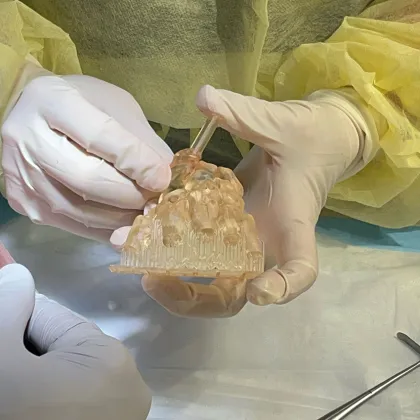
“The length of the program allowed me to apply to medical school. I really enjoyed the clinical immersion rather than solely an engineering approach like many other programs. There is a collaborative nature with the hospital, the clinical environment and the research labs. The program was flexible to align with my personal interests and goals, but with enough structure that I felt well supported. We have tremendous access to Yale mentors, school resources, and the opportunity to network.
- Current student
Electives
There is no set list of electives. Electives may be any graduate class offered by the GSAS, School of Management, School of Public Health, School of Medicine, and School of Law as long as they are consistent with the mission of the program (subject to director approval).
Potential electives include, but are not limited to:
- BENG 4724 – Topics in Computational and Systems Biology
- BENG 4767 – Systems Biology of Cell Signaling
- BENG 5350 – Biomaterial-Tissue Interactions
- BENG 5630 - Immunoengineering
- BENG 5849 – Biomedical Data Analysis
- CB&B 5750 – Bioinformatics Applications in Biomedicine
- CBIO 6606 – Advanced Topics in Cell Biology
- CENG 6150 – Synthesis of Nanomaterials
- CPSC 5370 – Database Systems
- CPSC 5490 – Quantum Information Systems
- CPSC 5792 – Real-Time 3D Graphics
- CPSC 5840 – Intro to Human-Computer Interaction
- CPSC 7760 – Topics in Industrial AI Applications
- ECE 9400 – Neural Networks & Learning Systems
- EEB 6500 – Evolutionary Biology
- ENAS 5000 – Mathematical Methods I
- ENAS 5440 – Fundamentals of Medical Imaging
- HPM 595 – FDA Law
- INP 9585 – Fundamentals of Neuroimaging
- MBIO 6850 – Biology of Bacterial Pathogens II
- MBIO 6860 – Biology of Bacterial Pathogens I
- MENG 5050 – Computer Aided Engineering
- NURS 5110 - Clinical Applications of Human Anatomy
- PATH 5650 – Biology of Cancer
- PATH 5681 – Advanced Topics in Cancer Biology
- PTB 5504 – Molecular Mechanisms of Drug Actions
- S&DS 6890 – Scientific Machine Learning
YSM Investigative Medicine Courses
- IMED 5630: Ethical Issues in Biomedical Research
- IMED 5661: Methods in Clinical Research I
- CDE 650: Introduction to Evidence-Based Health Care & Medicine
- EMPH 536: Evidence-Based Decision-Making in Public Health
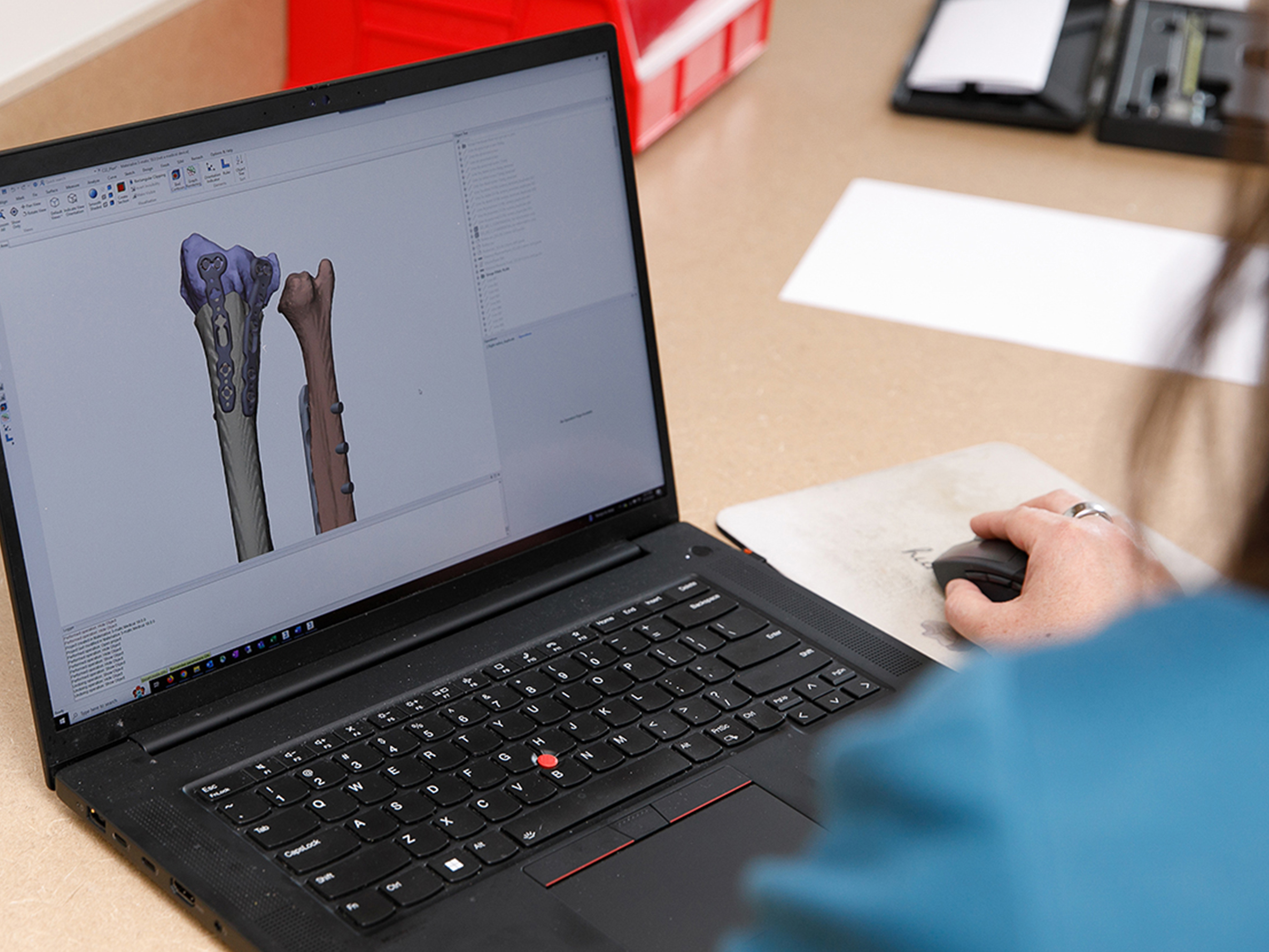
“As a hopeful physician-scientist, I wanted to garner an engineering background in addition to my biology experience to be able to provide better service in healthcare. As I was looking for biomedical engineering Masters programs, I noted that the Yale PMAE program explicitly merged practical clinical application with patient care.
- Current student
Location
The Masters in Personalized Medicine and Applied Engineering takes place in person in New Haven, CT at Yale University. Clinical components are taught at the Yale School of Medicine and Yale New Haven Hospital. Engineering components are taught at the Yale School of Engineering & Applied Science. Courses and lab work are conducted throughout campus, as many of the faculty share responsibilities between the Yale School of Medicine and the Yale School of Engineering & Applied Science.
Logistics
Applying: The application deadline for 2026-2027 is December 15, 2025. Check the Yale GSAS website for details.
Requirements: Applicants will need three letters of recommendation and their college transcript (medical school transcript is required for medical students). The GRE is optional.
Tuition is set by the GSAS. Further, due to the course work, students typically cannot devote sufficient time to be eligible for research funding. However, several of our Master's students perform a teaching fellowship for undergraduate courses and receive compensation for this work.
Frequently Asked Questions about the Personalized Medicine & Applied Engineering Program:
How will the transition be for international students coming to the US for the first time?
International students will be able to make a terrific transition coming to the USA with all the help and resources that Yale University has to offer.
What fellowships or foundations are available to help me fund the year? Are there teaching assistant jobs available for students?
While the PMAE program has limited funds to offer fellowships, students are encouraged to apply for external support from funding agencies. You may be eligible to apply for loans, depending on your country of citizenship, and for on-campus employment.
Do you offer health insurance for students?
The Graduate School provides Yale Health Basic Coverage at no cost to all students (Master's and PhD) who are enrolled at least half-time in degree-seeking programs.
How does Yale make it safe for students on campus?
Yale Public Safety includes the Yale Police, Yale Security, Emergency Management, and Systems and Services. The Yale Public Safety team fosters a safe and welcoming campus environment in partnership with the community we serve.
How much does the program cost?
Information on tuition and fees can be found on the Yale Graduate School of Arts and Sciences website.